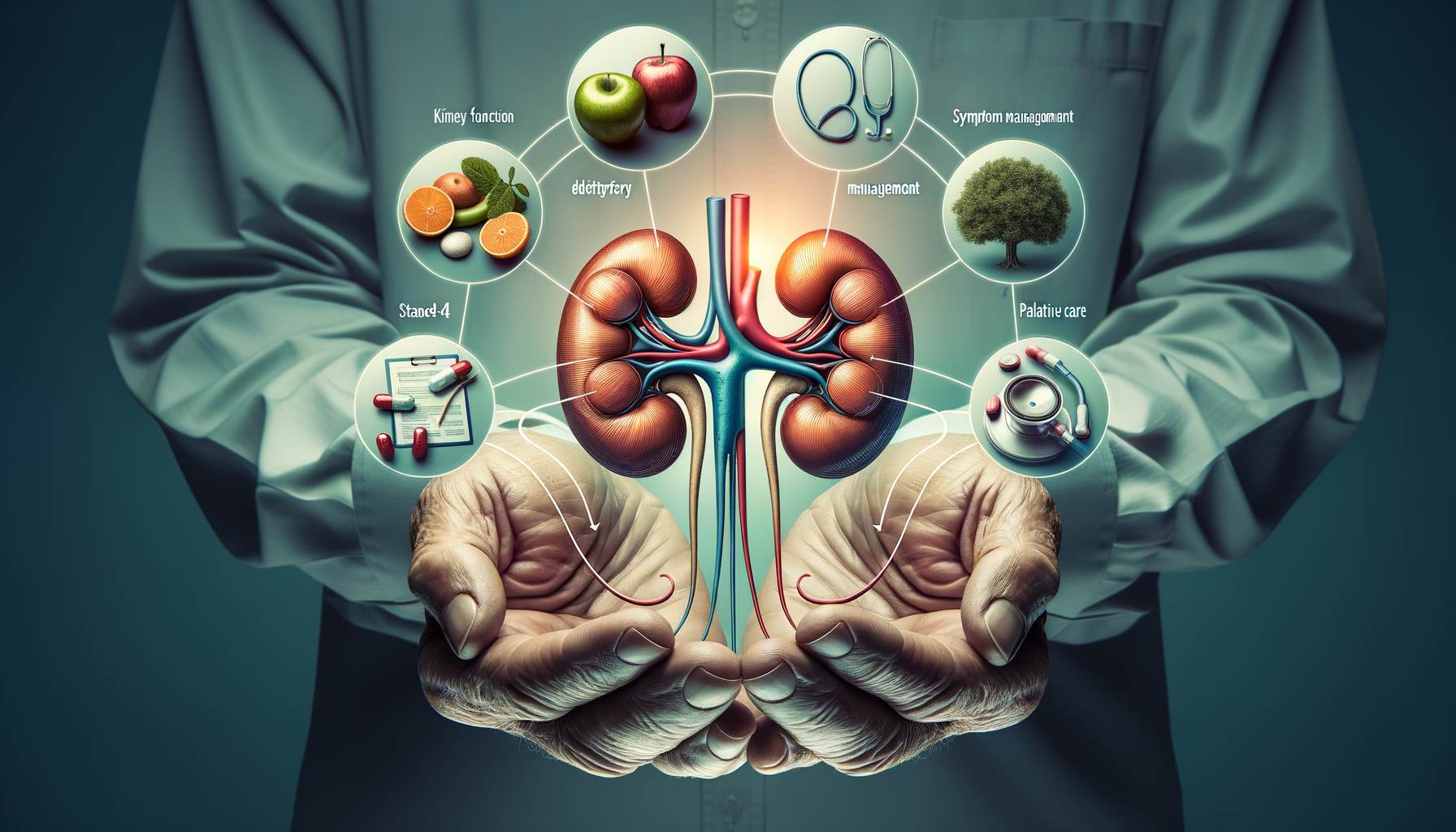Ways to Understand and Manage Stage 4 CKD in the Elderly
When dealing with kidney function decline in later years, understanding the intricacies becomes crucial. How can one gain insight into this stage of chronic kidney disease in older adults? Exploring this topic can shed light on managing this specific health challenge.

Understanding Kidney Function in Elderly CKD Patients
As individuals age, the risk of developing chronic kidney disease (CKD) increases significantly. This is particularly true for those who reach the later stages of CKD, such as Stage 4, where kidney function declines to a critical level. Understanding kidney function in elderly CKD patients is essential for effective management and improving quality of life. The kidneys play a crucial role in filtering waste products from the blood, regulating blood pressure, and maintaining electrolyte balance. In elderly CKD patients, these functions are compromised, leading to a range of health issues.
One key aspect of understanding kidney function in this demographic is recognizing the gradual nature of kidney decline. Often, symptoms are subtle and may include fatigue, swelling in the extremities, and changes in urination patterns. Regular monitoring of kidney function through blood tests, such as glomerular filtration rate (GFR) and serum creatinine levels, is essential to track the progression of the disease.
Moreover, elderly patients often present with comorbidities such as diabetes and hypertension, which can further complicate kidney function. Managing these conditions alongside CKD is crucial to slowing disease progression. It is important to maintain open communication with healthcare providers to tailor a treatment plan that addresses the unique needs of elderly patients. This plan may include medications to control blood pressure and blood sugar levels, as well as lifestyle modifications to reduce kidney strain.
Dietary Management for Stage 4 CKD
Dietary management plays a pivotal role in managing Stage 4 CKD, especially in elderly patients. As the kidneys lose their ability to filter waste, dietary modifications become necessary to prevent further deterioration and manage symptoms. A renal diet typically involves controlling protein, sodium, potassium, and phosphorus intake to prevent the buildup of waste in the body.
Protein intake should be carefully monitored, as excessive protein can increase the workload on the kidneys. However, protein is also necessary for maintaining muscle mass and overall health, making it important to find a balance. Consulting with a dietitian can help determine the appropriate amount of protein for each individual.
Sodium restriction is also crucial, as it helps control blood pressure and reduces fluid retention. High sodium levels can exacerbate hypertension, a common complication in CKD patients. Similarly, managing potassium and phosphorus levels is vital to prevent complications such as hyperkalemia and bone disorders. Foods rich in potassium and phosphorus, such as bananas, oranges, dairy products, and nuts, may need to be limited or avoided.
- Monitor protein intake to balance kidney workload and nutritional needs.
- Restrict sodium to manage blood pressure and fluid retention.
- Limit potassium and phosphorus-rich foods to prevent complications.
Additionally, ensuring adequate caloric intake is important to prevent malnutrition, which can be a concern in elderly patients. A personalized dietary plan can help manage Stage 4 CKD effectively, improving the patient’s quality of life.
Symptom Management and Palliative Care in Elderly CKD
As CKD progresses to Stage 4, symptom management becomes a critical component of care, particularly for elderly patients. The aim is to alleviate symptoms and enhance comfort while maintaining dignity and quality of life. Common symptoms include fatigue, itching, muscle cramps, and sleep disturbances, all of which can significantly impact daily living.
Palliative care is an approach that focuses on symptom relief and support for patients with serious illnesses. For elderly CKD patients, palliative care can provide a comprehensive support system that addresses physical, emotional, and spiritual needs. This type of care involves a multidisciplinary team that works closely with patients and families to create a care plan that aligns with the patient’s goals and preferences.
Medication management is often necessary to control symptoms. For example, phosphate binders may be prescribed to manage elevated phosphorus levels, while medications to relieve itching or improve sleep quality can enhance overall well-being. Additionally, counseling and support groups can offer emotional support, helping patients and families cope with the challenges of living with CKD.
- Focus on symptom relief and enhancing quality of life.
- Utilize a multidisciplinary approach for comprehensive care.
- Provide emotional support through counseling and support groups.
Ultimately, the goal of symptom management and palliative care is to ensure that elderly CKD patients live their remaining years with dignity and comfort, surrounded by supportive care that respects their wishes and enhances their quality of life.